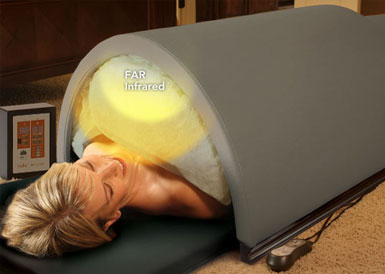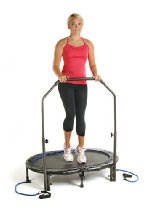
Are you suffering from hormonal imbalance? How do you know? If you get acne, dry skin, or rashes, irregular or painful periods, you may have a hormone imbalance. Have you recently had your period after months of not having it? Do you feel that your breasts are starting to get tender and sore more often? Do you have awful PMS, no libido, weight loss resistance, fibroids, heavy or super light periods?
If you answered yes to many of the questions stated above, then you’re probably having a hormonal imbalance. Hormone imbalance is generally normal for women who are either on the peri-menopausal (about 4-6 years before menopause), menopausal or post-menopausal stage. However, this does not mean that you have to stop taking care of yourself or detoxing every now and then. In fact, it’s better to detoxify more than ever during these years.

What does it mean to “detox?”
Detoxification occurs via the liver through Phase I and Phase II detoxification, our skin, our lungs, our bowels, and kidneys. But our main organs for hormone detoxification are our liver and digestive system. Estrogen gets broken down and re-packaged in the liver to be excreted through our bowels and kidneys. However, if you have any sort of liver dysfunction or compromise, the “dirty” and older estrogens may linger and cause problems. If your digestion is impaired with poor bile production, constipation, and poor motility, you may be re-uptaking those dirty, conjugated hormones. Focus on repairing your gut function, eat a high-fiber diet, fermented foods, moving your bowels daily and moving your body daily.
Detoxing with Food
Detoxing is not solely dependent on food, but it’s one of the many ways that can help balance your hormones. Eat lots of Brassica family vegetables, broccoli sprouts, raw carrots, beets, leafy greens, and raspberries for their ellagic acid. Add in some warm lemon water in the morning and drink lots of filtered water.
Easing up on fried foods, fatty animal meats, gluten, and dairy for a while can also have a profound effect on your digestive system. It’s not necessary to go on week-long cleanses or smoothie programs, just lighten the intake a bit.
Through this cleansing, you allow your body to excrete excess waste and toxins that only contribute to hormonal imbalance.
Detoxing through Sweat
Working out as a way of detoxing through sweat is equally important as detoxing with food. By moving your body, you’re making sure that your hormones and your liver are working properly. Excess hormones get stored as fat in your body, that’s why it’s important to move your body daily to excrete the excess toxins through sweat, which can help restore hormonal balance.
Not only by working out can you restore your body’s natural hormone balance, but also by attending yoga classes. Find an activity that you love! As long as you’re sweating and excreting excess body waste or toxins, you’re good to go. Infrared saunas can also assist you with sweating out toxins via the skin. Just be sure to dry skin brush and shower right afterward.I have one in my home that I rent for clients and for my own use.

Detoxing through Self-care
There’s no better way to detox than actually taking care of yourself and prioritizing your inner peace and wellness. When you’re stressed, and a lot of things fill up your mind, your brain can signal your body to produce hormones that could help you ease up a bit. But, sometimes this signaling that the brain does cannot help in balancing your hormones. Instead, it only adds to the excess hormones or toxins in your body.
Detoxing through self-care is easy. Some people may like meditation. Take a few moments off during the day, either in the morning or at night, to close your eyes, reflect, and breathe. Typically, people would suggest thinking of happy thoughts, and this is very effective. You can also release happy hormones by also doing the things that you love (your hobbies, favorite things to do during your free time, etc.)
Other forms of self-care include warm Epsom salt baths, dry skin brushing,rebounding, and massage. All of these can help you move toxins out of the body.

What’s Next?
After you take these steps and you are still experiencing hormonal symptoms, it’s time to test your hormone levels with the DUTCH test for comprehensive hormones and see what’s really going on. The DUTCH test looks at your hormone metabolites, how the liver is processing your hormones and what pathway they are taking. I’ve personally run this test on myself and hundreds of clients since last year and it’s been very eye-opening to see what’s really going on.
The Dutch test measures estrogen, progesterone, testosterone, melatonin, DHEA, cortisol, and some organic acids. But, more importantly, we can see which pathway the estrogens are being detoxed via the liver. Is it the safer 2-OH pathway or the “dirty” 4-OH pathway, that can lead to reproductive cancers. This way, we can focus on what we need to be doing for your body – not just guessing!
Let’s set up a free consultation to discuss your hormones today and if you should be using the DUTCH test (hint: everyone should test!).

